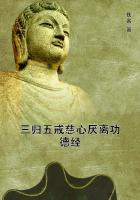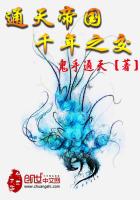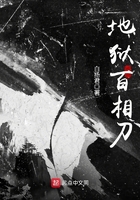Secondly: The commodities entering into the circulation of industrial capital (including the requisite means of subsistence into which variable capital, after being paid to the labourers, is transformed for the purpose of reproducing their labour-power), regardless of their origin and of the social form of the productive process by which they were brought into existence, come face to face with industrial capital itself already in the form of commodity-capital, in the form of commodity-dealer's or merchant's capital.
And merchant's capital, by its very nature comprises commodities of all modes of production.
The capitalist mode of production presupposes not only large-scale production but also, and necessarily so, sales on a large scale, hence sale to the merchant, not to the individual consumer. If this consumer is himself a productive consumer, hence an industrial capitalist, i.e., if the industrial capital of one branch of production supplies some other branch of industry with means of production, direct sale by one industrial capitalist to many others take place (in the form of orders, etc.). To this extent every industrial capitalist is a direct seller and his own merchant, which by the way is when he sells to a merchant.
Trading in commodities as the function of merchant's capital is a premise of capitalist production and develops more and more in the course of development of such production. Therefore we occasionally take its existence for granted to illustrate particular aspects of the process of capitalist circulation; but in the general analysis of this process we assume direct sale, without the intervention of a merchant, because this intervention obscures various facets of the movement.
Cf. Sismondi, who presents the matter somewhat *****ly:
"Commerce employs considerable capital, which at first sight does not seem to be a part of that capital whose movement we have described.
The value of the cloth accumulated in the stores of the cloth-merchant seems at first to be entirely foreign to that part of the annual production which the rich gives to the poor as wages in order to make him work. However this capital has simply replaced the other of which we have spoken. For the purpose of clearly understanding the progress of wealth, we have begun with its creation and followed it to its consumption. Then the capital employed in cloth manufacturing, for instance, always seemed the same to us; it was exchanged for the revenue of the consumer, it was divided into only two parts, one of them serving as revenue of the manufacturer in the form of the profit, the other serving as revenue of the labourers in the form of wages for the time they were manufacturing new cloth.
"But it was soon found that it would be to the advantage of all if the different parts of this capital were to replace one another and that, if 100,000 ècus were sufficient for the entire circulation between the manufacturer and the consumer, they should be divided equally between the manufacturer, the wholesale merchant, and the retail merchant.
The first then did with only one--third of this capital the same work as he had done with the entire capital, because as soon as his work of manufacturing was completed he found out that a merchant would rather buy from him than a consumer would. On the other hand the capital of the wholesaler was much sooner replaced by that of the retailer....The difference between the sums advanced for wages and the purchase price paid by the ultimate consumer was considered the profit of those capitals. It was divided between the manufacturer, the merchant and the retailer, from the moment that they had divided their functions among themselves, and the work performed was the same, although it had required three persons and three parts of capital instead of one." ( Nouveaux Principes , I, pages 139-140.)"All of them [the merchants] contributed indirectly to the production;for having consumption for its object, production cannot be regarded as completed until the thing produced is placed within the reach of the consumer."( Ibid. , p. 137)
In the discussion of the general forms of the circuit and in the entire second book in general, we take money to mean metallic money, with the exception of symbolic money, mere tokens of value, which are designed for specific use in certain states, and of credit-money, which is not yet developed. In the first place, this is the historical order; credit-production plays only a very minor role, or none at all, during the first epoch of capitalist production. In the second place, the necessity of this order is demonstrated theoretically by the fact that everything of a critical nature which Tooke and others hitherto expounded in regard to the circulation of credit-money compelled them to hark back again and again to the question of what would be the aspect of the matter if nothing but metal-money were in circulation. But it must not be forgotten that metal-money may serve as a purchasing medium and also as a paying medium. For the sake of simplicity, we consider it in this second book generally only in its first functional form.
The process of circulation of industrial capital, which is only a part of its individual circuit, is determined by the general laws previously set forth (Buch I, Kap. III), [English edition: Ch. III. -- Ed. ]
in so far as it is only a series of acts within the general circulation of commodities. The greater the velocity of the currency of money, the more rapidly therefore every individual capital passes through the series of its commodity or money metamorphoses, the more numerous are the industrial capitals (or individual capitals in the form of commodity-capitals) started circulating successively by a given mass of money, for example £500.















